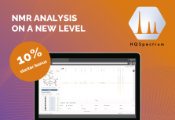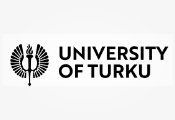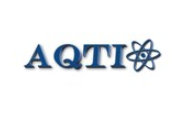Q-CTRL Awarded £1 Million Funding in UK Quantum Catalyst Competition
OXFORD, February 05, 2024 -- Q-CTRL, a global leader in developing useful quantum technologies through quantum control infrastructure software, was today announced as a winner of the Small Business Research Initiative (SBRI) Quantum Catalyst Fund Competition. Awarded £1 million in funding, Q-CTRL's winning proposal will deliver new quantum-hardware-optimized algorithmic solvers built on their proprietary performance management software to the Department for Transport and Network Rail. This software will address train schedule optimization for both large-scale rail networks and detailed station routing, bringing a new generation of quantum solutions to pressing government problems.
The SBRI competition is funded by the Department for Science, Innovation and Technology (DSIT) and Innovate UK (IUK) to explore the benefit of using quantum technologies in various areas of interest for the UK government.
The competition consisted of two stages: Phase 1 with a three-month duration and a £2 million total budget, followed by Phase 2 extending 15 months with a total budget of up to £15 million. Successful projects from Phase 1 competed to continue their development in Phase 2.
Q-CTRL was one of six entries achieving Phase 2 status and received a share of the £15 million funding pool. The work to be delivered builds on Q-CTRL’s deep expertise in quantum computing for logistics and transport, developed with customers including Transport for NSW and the Australian Army.
Science Minister, Andrew Griffith MP said, “As we steer towards an economy benefitting from quantum, this further £45 million in funding underscores our commitment to support bright UK innovators who are pushing boundaries and seizing the potential of this technology to transform our public services.”
Planning and operating public rail transport networks involves making tough scheduling choices to balance passenger service, infrastructure management, and resilience to disruption. To effectively meet these objectives, fast and high-quality computing tools are needed, solving a class of problems called “optimization”.
The Department for Transport and Network Rail is interested in leveraging state-of-the-art quantum solutions for scheduling to provide improvements in transit time, robustness to delays, and reductions in operating costs and emissions.
In the winning proposal, researchers and engineers at Q-CTRL will tailor a quantum optimization algorithm for high-performance scheduling to run efficiently on quantum computer hardware, and test on systems from Oxford Quantum Circuits (OQC). The software is designed to be usable by anyone in the Department for Transport and Network Rail’s scheduling team, without needing any expertise in quantum computing.
Andre Carvalho, Head of Quantum Control Solutions at Q-CTRL noted, "This funding marks a significant step towards applying quantum computing in practical settings. By optimizing train schedules with quantum algorithms, we're not just enhancing efficiency and reducing emissions; we're paving the way for quantum technologies to solve real-world problems and make a tangible impact on people's lives.”
Q-CTRL’s leading expertise in delivering useful quantum solutions leveraging performance-management infrastructure software for quantum computers, together with OQC’s state-of-the-art quantum processors, will enable the Department to easily prototype quantum solutions for their most pressing challenges and gain real insights into the future of quantum computing for their sector.
Quantum computing is an emerging technology with the opportunity to transform a wide range of industries. In the near term, quantum optimization for transport, logistics, and machine learning is a leading candidate for early value capture, where even small computational benefits can deliver huge advantages.




































